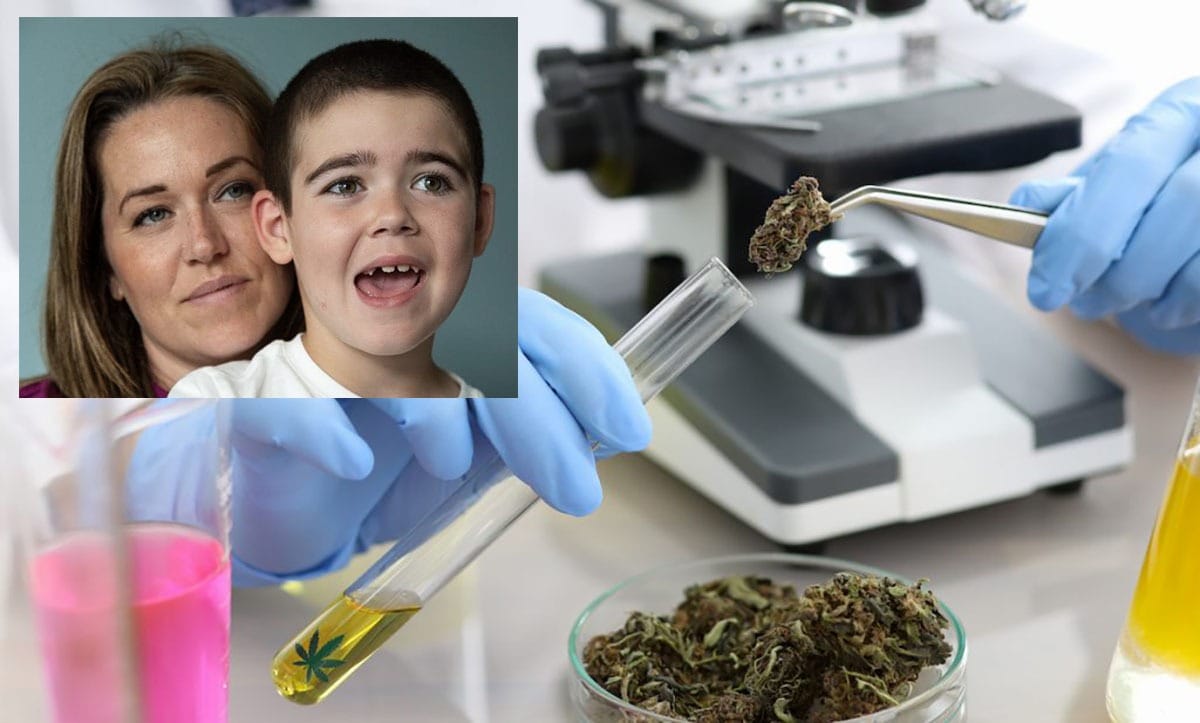It’s not as simple as swapping children from one cannabis product to another – consistency is key in the treatment of severe epilepsy, warn experts.
Dozens of children who live with rare forms of refractory epilepsy, have been left without access to their cannabis medication as supplies were stopped following the end of the Brexit transition period.
Over 40 patients, who have been prescribed certain cannabis medicines in the UK but can only obtain their prescription through the Transvaal pharmacy in the Netherlands, have just weeks worth of the life-saving treatment left.
In a letter stating that prescriptions issued in the UK ‘can no longer be lawfully dispensed in an EU Member State’ from 1 January, 2021, the Department of Health and Social Care (DHSC) advised pharmacies to find “alternative” prescriptions to switch patients onto.
But experts have warned that it is not as simple as “switching children from one product to another”, as each variant of cannabis product is different and taking epilepsy patients off these specific oils could be life-threatening.

Dr Callie Seaman
Dr Callie Seaman, a plant scientist with more than 20 years experience in cannabis, explains: “Cannabis plants are made up of 565 different secondary metabolites. There are so many different compounds in there and the problem is that we only analyse for THC, CBD and some of the terpenes.
“You can have the same ratio of THC to CBD but there’s so many other components to it which can cause problems.”
She continues: “When the oil is coming from a different supply, it’s grown in a different place and all these factors can influence those secondary metabolites. Even between batches you can get differences and we’re talking about changing to a completely different brand.”
Suppliers also use different carriers, which are made from various sources such as peanut, olive oil or MCT, which can cause their own allergen problems.
Likening it to tomato ketchup, Dr Seaman adds: “Think of it like tomato sauce. Everyone knows that Heinz branded sauce tastes a certain, and yes, you can get Tesco’s own tomato sauce but it’s not the same is it?”
Dr Seaman, who lives with a less complex form of epilepsy herself, explained that consistency was vital in keeping the condition under control.
“Epilepsy is such a complex disease, there are so many different forms of it and everyone has different triggers, she says.
“Epilepsy needs consistency, be it sleep, diet, medication – when you find that winning formula you need to stick to it, as soon as you start changing things that’s when issues arise.”
Many of the children at the centre of this have seen their conditions improve drastically since taking Bedrocan oils, some going from suffering hundreds of episodes a day to being completely seizure-free and living relatively normal lives.
Without access to the treatment the inevitable increase in seizures comes with many risks, the most severe being death and irreparable brain damage.
“Every seizure you have comes with a risk of death,” says Dr Seaman.
“That doesn’t happen to everyone, but there is still damage occurring and there are so many other consequences that can be triggered.
“With epilepsy, you’re trying to reduce the number of seizures you’re having to none. These children are having anywhere between 150 a day, to some which are now down to 15 or even less.”
Neurologist, Professor Mike Barnes who founded the Medical Cannabis Clinicians Society and obtained the first full license to prescribe medical cannabis in the UK, said the DHSC had shown an “ astonishing level of ignorance” in assuming all cannabis products were the same.
Dr Seaman agrees that the situation shows a major “lack of understanding” and knowledge of cannabis medicines in the UK, specifically when it comes to treating severe epilepsy.
“For patients taking medical cannabis for palliative care and other diseases, a switch in oil is not the end of the world,” she adds.
“It’s great that there are companies in the UK offering to help sort this out, but what’s needed with epilepsy is consistency. Any neurologist will tell you that when you find something works, you have to stick with it.”

 News6 months ago
News6 months ago
 News6 months ago
News6 months ago
 Science5 months ago
Science5 months ago
 Industry6 months ago
Industry6 months ago
 News6 months ago
News6 months ago
 News5 months ago
News5 months ago
 Health4 months ago
Health4 months ago
 News5 months ago
News5 months ago













